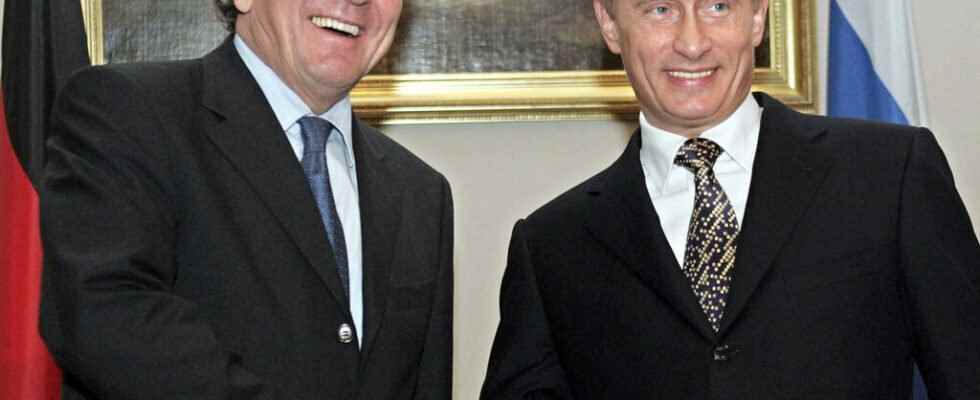The current crisis between Russia and Ukraine continues to generate many discussions at different levels. For the past week, German Chancellor Olaf Scholz has been increasing meetings and contacts. He will be tomorrow, Monday February 14, in Kiev and the next day in Moscow. Both the Social Democrat and his party are forced to distance themselves from the previous SPD chancellor, Gerhard Schröder, whose commitment to Moscow has drawn much criticism.
With our correspondent in Berlin, Pascal Thibault
” Gerhard Schröder does not speak on behalf of the government, he does not work for the government, he is not the government “: Olaf Scholz had, during his trip to Washington last Monday, “to dot the i’s”. Social Democrat Gerhard Schröder who led Germany from 1998 to 2005 has become a problem for his party, especially as the SPD and Olaf Scholz have been criticized for not having a clear position on Moscow in the current crisis and to procrastinate on a possible questioning of the German-Russian gas pipeline Nord Stream 2 in the event of an attack by Moscow against Ukraine.
A friend of Vladimir Putin
Because Gerhard Schröder, a longtime friend of Vladimir Putin, has, since his departure from power, official functions within Russian energy groups close to power such as the oil company Rosneft or the shareholders’ committee of Nord Stream 2. In addition, the former chancellor should join the supervisory board of the gas company Gazprom in June.
” Provocation » from Ukraine
And behind the scenes, Gerhard Schröder supports these companies in Germany as a lobbyist. And he defends Vladimir Putin publicly. Recently, he thus denounced the “ Provocation from Ukraine which would explain Moscow’s reactions. The long cumbersome silence of the SPD dissipates little by little but with difficulty. More and more social democratic leaders are cutting ties with Gerhard Schröder. 56% of Germans believe that the statements of the ex-chancellor are counter-productive in the current crisis.
►Also read : Ukraine crisis: Scholz reaffirms Berlin’s support for the Baltic countries
